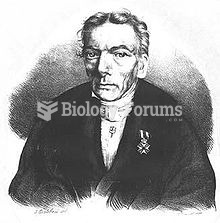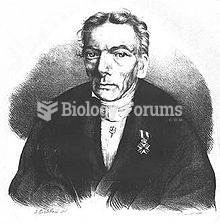Definition for Hegel, Georg
From Biology Forums Dictionary
Hegel, Georg (1770 to 1831): Idealist philosopher, born in Germany. He studied theology at Tübingen, and in 1801 edited The Critical Journal of Philosophy in which he outlined his system with its emphasis on reason rather than Romantic intuitionism, which he attacked in his first major work, The Phenomenology of the Mind. His approach, influenced by Kant, rejects the reality of finite and separate objects and minds in space and time, and establishes an underlying, enveloping unity, the Absolute. The quest for greater unity and truth is achieved by the dialectic, positing something (thesis), denying it (antithesis), and combining the two in a synthesis which contains a greater portion of truth in its complexity. (Note: this terminology, although helpful in explicating Hegel’s Dialectic, is seldom mentioned explicitly in Hegel’s own work; its prevalence may, in fact, stem from the work of Fichte.)


